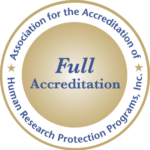What is Biomedical Research
Biomedical research is the study of human physiology and the treatment or understanding of disease.
Types and Methods
- Studies designed to evaluate the safety, effectiveness, or usefulness of an intervention:
- research on therapies (g., drugs, surgical interventions, or medical devices)
- diagnostic procedures (g., imaging biomarkers)
- preventive measures (g., vaccines or diet)
- Research on normal human functioning and development:
- studies of the human body while exercising, fasting, eating, sleeping, or learning
- responding to such things as stress or sensory stimulation
- Studies comparing the functioning of a particular physiological system at different stages of development
- Studies defining normal childhood development so that deviations from normal can be identified
- Medical records and biospecimens research
- Research on specific disease processes to establish and improve methods of prevention, diagnoses, and treatment
- Research on the human genome and genetic markers
Risks/Harm
Risk is the probability of harm or injury (physical, psychological, social, or economic) occurring as the result of participation in a research study. Biomedical researchers must consider the following risks when conducting their study:
- Social, psychological, or economic harm
- Physical harm
- possible side effects of drugs, biologics, or medical devices
- injury from medical procedures
The IRB is responsible for conducting a risk/benefit assessment and will want to know how such risks will be minimized or addressed.
iStar
When submitting an application in iStar you will see the following in section 1.5.

Genomic Data Sharing (GDS)/Stem Cell Research
- USC Stem Cell Regenerative Medicine Initiative
- USC Stem Cell Research Oversight Committee (SCRO)
- NIH Genomic Data Sharing Policy (formerly ‘GWAS’)
- California Institute for Regenerative Medicine (CIRM)
- Genetics and Public Policy Center
- NIH: Stem Cell Research
- U.K. Human Fertilisation and Embryological Authority
- The Hinxton Group: An International Consortium on Stem Cells, Ethics and Law
- The International Society for Stem Cell Research (ISSCR)
- Human Genome Project: Educational Kit

